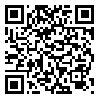

Volume 19, Issue 1 (3-2021)
RBS 2021, 19(1): 58-74 |
Back to browse issues page
Download citation:
BibTeX | RIS | EndNote | Medlars | ProCite | Reference Manager | RefWorks
Send citation to:



BibTeX | RIS | EndNote | Medlars | ProCite | Reference Manager | RefWorks
Send citation to:
Torkman M, kakabraee K, Alsadat Hosseini S. Comparison of the Effectiveness of Drug Therapies, Neurological Feedback and Combined Psychological Interventions on Behavioral Problems of Attention Deficit/Hyperactivity Disorder. RBS 2021; 19 (1) :58-74
URL: http://rbs.mui.ac.ir/article-1-1029-en.html
URL: http://rbs.mui.ac.ir/article-1-1029-en.html
1- PhD Student, Department of Psychology, Kermanshah Branch, Islamic Azad University, Kermanshah, Iran
2- Associate Professor of Department of Psychology, Kermanshah Branch, Islamic Azad University, Kermanshah, Iran , keivan@iauksh.ac.ir
3- Assistant Professor of Department of Psychology, Kermanshah Branch, Islamic Azad University, Kermanshah, Iran
2- Associate Professor of Department of Psychology, Kermanshah Branch, Islamic Azad University, Kermanshah, Iran , keivan@iauksh.ac.ir
3- Assistant Professor of Department of Psychology, Kermanshah Branch, Islamic Azad University, Kermanshah, Iran
Abstract: (1831 Views)
Aim and Background: So far, several therapeutic approaches, both pharmacological and non-pharmacological, have been used for patients with Attention Deficit Hyperactivity Disorder and researchers are trying to determine the effectiveness of each of these approaches. Therefore, the aim of this study was to compare the effectiveness of drug therapy, neural feedback and integrated psychological interventions (parent education, play therapy and cognitive education) on behavioral problems of ADHD.
Methods and Materials: The research method was quasi-experimental and the pre-test-post-test-follow-up and control group design. The statistical population included all children aged 9 to 12 years in Hamedan. Sampling method was Purposive. The psychotherapy group received medication daily for 12 weeks. The neural feedback group received 24 sessions of 45 minutes twice a week. The group of integrated psychological interventions received training for 24 sessions. Participants were assessed using the Swanson, Nolan, and Pelham Fourth Edition Scale to assess the clinical signs of ADHD, the College Neuropsychological Test to measure executive function, and the Rutter form Behavioral Problems Self-Report Scale. Multivariate analysis of covariance and multivariate analysis of variance were used to analyze the data.
Findings: The results showed that combined psychological interventions were more effective in the behavioral problems variable and all its components compared to drug therapy and neurological feedback, which was also significant in the quarterly follow-up (p≤0.001).
Conclusions: It seems that integrated psychological interventions can be an effective and lasting treatment for behavioral problems in children with ADHD and can replace other therapeutic approaches such as medication and neurological feedback.
Methods and Materials: The research method was quasi-experimental and the pre-test-post-test-follow-up and control group design. The statistical population included all children aged 9 to 12 years in Hamedan. Sampling method was Purposive. The psychotherapy group received medication daily for 12 weeks. The neural feedback group received 24 sessions of 45 minutes twice a week. The group of integrated psychological interventions received training for 24 sessions. Participants were assessed using the Swanson, Nolan, and Pelham Fourth Edition Scale to assess the clinical signs of ADHD, the College Neuropsychological Test to measure executive function, and the Rutter form Behavioral Problems Self-Report Scale. Multivariate analysis of covariance and multivariate analysis of variance were used to analyze the data.
Findings: The results showed that combined psychological interventions were more effective in the behavioral problems variable and all its components compared to drug therapy and neurological feedback, which was also significant in the quarterly follow-up (p≤0.001).
Conclusions: It seems that integrated psychological interventions can be an effective and lasting treatment for behavioral problems in children with ADHD and can replace other therapeutic approaches such as medication and neurological feedback.
Keywords: Attention Deficit / Hyperactivity Disorder, Drug Treatment, Nervous Feedback, Executive Functions, Behavioral Problems, Psychological Interventions
Type of Study: Research |
Subject:
Special
Received: 2021/04/25 | Accepted: 2021/06/7 | Published: 2021/06/21
Received: 2021/04/25 | Accepted: 2021/06/7 | Published: 2021/06/21
Send email to the article author
| Rights and permissions | |
 |
This work is licensed under a Creative Commons Attribution-NonCommercial 4.0 International License. |





